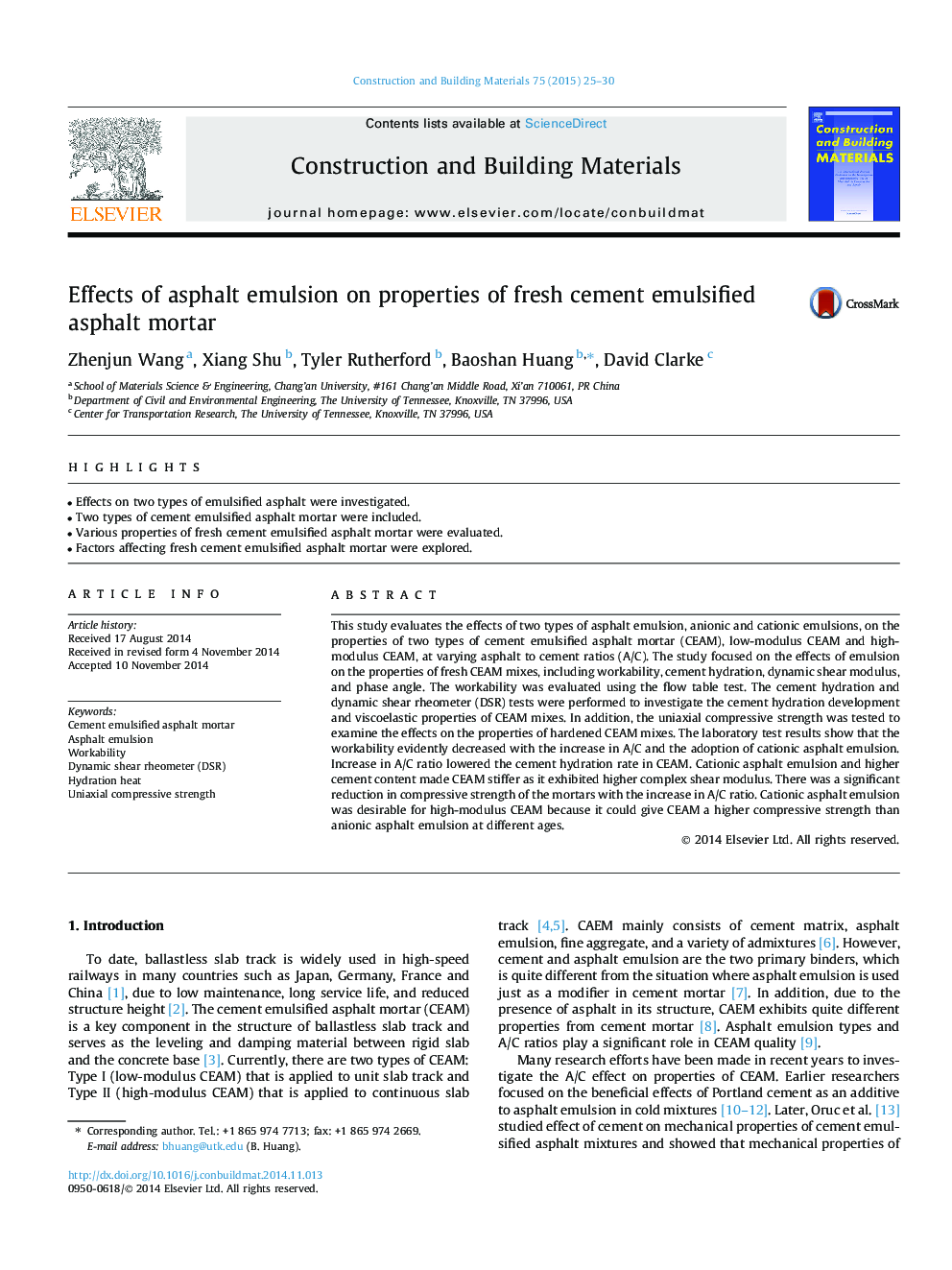| Article ID | Journal | Published Year | Pages | File Type |
|---|---|---|---|---|
| 6721460 | Construction and Building Materials | 2015 | 6 Pages |
Abstract
This study evaluates the effects of two types of asphalt emulsion, anionic and cationic emulsions, on the properties of two types of cement emulsified asphalt mortar (CEAM), low-modulus CEAM and high-modulus CEAM, at varying asphalt to cement ratios (A/C). The study focused on the effects of emulsion on the properties of fresh CEAM mixes, including workability, cement hydration, dynamic shear modulus, and phase angle. The workability was evaluated using the flow table test. The cement hydration and dynamic shear rheometer (DSR) tests were performed to investigate the cement hydration development and viscoelastic properties of CEAM mixes. In addition, the uniaxial compressive strength was tested to examine the effects on the properties of hardened CEAM mixes. The laboratory test results show that the workability evidently decreased with the increase in A/C and the adoption of cationic asphalt emulsion. Increase in A/C ratio lowered the cement hydration rate in CEAM. Cationic asphalt emulsion and higher cement content made CEAM stiffer as it exhibited higher complex shear modulus. There was a significant reduction in compressive strength of the mortars with the increase in A/C ratio. Cationic asphalt emulsion was desirable for high-modulus CEAM because it could give CEAM a higher compressive strength than anionic asphalt emulsion at different ages.
Keywords
Related Topics
Physical Sciences and Engineering
Engineering
Civil and Structural Engineering
Authors
Zhenjun Wang, Xiang Shu, Tyler Rutherford, Baoshan Huang, David Clarke,
